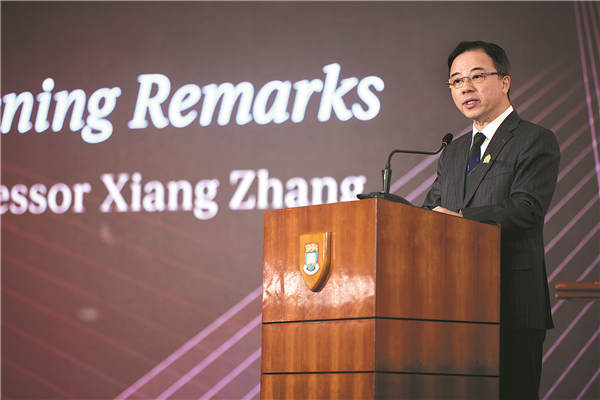Forum calls for open, accessible collaboration


Hennessy said that he believes artificial intelligence will make a great contribution to improving human life in the future. He thinks that self-driving cars will definitely become a reality as a tool that can be used on a daily basis, and other aspects of the technology, such as AI for medical image diagnosis and analysis, will be groundbreaking.
In response to an interactive question on whether AI will surpass humans to the extent that it will replace them in many jobs, Hennessy said, "It is our responsibility as a society to train and equip more ordinary people to master these new technologies, to appreciate the benefits and to create new jobs."
Hennessy stressed that humans still have a very important role to play in correcting and ensuring that AI makes appropriate analyses and diagnoses, for example, in some serious medical cases. "Critical thinking is very important," he added.
Zhang pointed out the importance of collaboration in solving global problems.
"Let us keep the realm of sciences and technology as open, accessible, and nonpartisan as possible, despite the increasing geopolitical tensions that we cannot ignore," he said.
Zhang said, "I believe firmly that the right approach to new scientific development should be neither overwhelming pessimism nor optimism, but instead techno-pragmatism: pragmatism when it comes to new knowledge is absolutely vital in unlocking the multilateral, multistakeholder solutions to global challenges."
Zhang further emphasized that an international and diverse city like Hong Kong, with its close ties to global development networks, plays a key role in driving innovation and technology development, and that HKU should contribute its force as well.
"I look forward to bringing together distinguished scholars from different fields to make this forum a constant platform for the community to inspire diverse ideas, stimulate new thinking and provide solutions," he said.




































